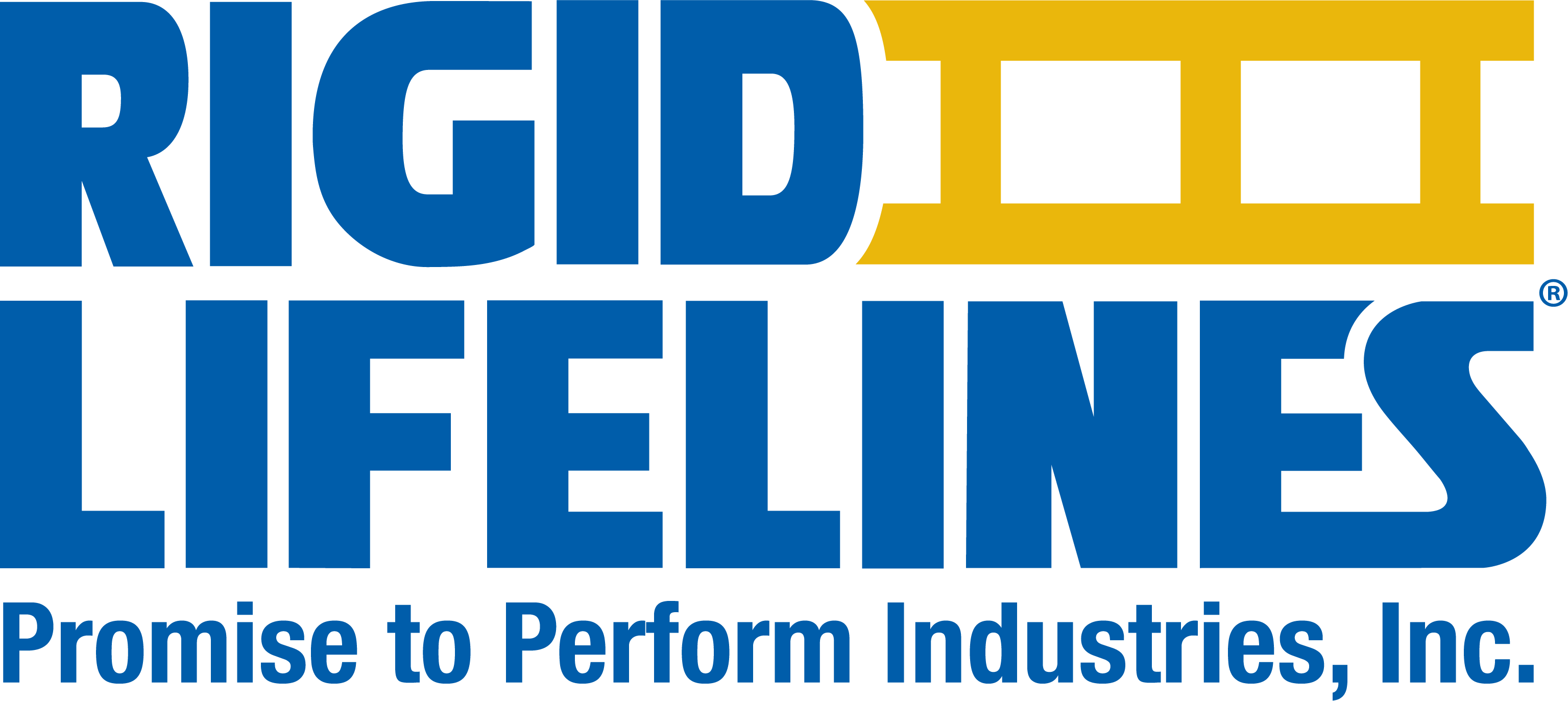Posts by developer
Part 1: Employers: The Minimum Requirements for a Managed Fall Protection Program
Employers have a lot of duties and responsibilities when it comes to at-height workers. Part one of this four-part blog series covers the expectations for employers to keep their workers safer at height—following the national standard that determines the minimum requirements for a comprehensive fall protection program—ANSI Z359.2-2007. POLICY STATEMENTS: Employers have a lot of…
Read MoreAsk Rigid Lifelines: What’s the difference between an engineered system and a non-engineered system?
We receive questions about non-engineered fall protection systems and how they differ from engineered fall protection systems on a regular basis. So, let’s take an in-depth look at their basic differences and the load testing requirements for each. Engineered Fall Protection Systems: An engineered fall protection system is one that has been tested and validated…
Read MoreRisk Assessment and Hazard Controls: Ensure Your Workers Are Safe from Unnecessary Risks
Risk assessment is the process of identifying hazards, analyzing or evaluating the risk associated with those hazards, and determining appropriate ways to eliminate or control them. Conducting a risk assessment requires a thorough look at your workplace or factory to identify situations, equipment, machinery, and processes that could potentially cause harm to workers or the…
Read MoreFall Protection for Tanker Trucks, Loading Docks, Flatbed Trucks, and Railcars
The transportation industry often requires workers to climb atop tanker trucks, flatbeds, and even open or closed trailers on a regular basis. It’s often unknown that more people die falling from 20 feet or less than from much higher heights. There are many other risks to transportation professionals, but the daily tasks of servicing large…
Read More13 Steps to Improve Construction Safety
Unfortunately, construction worker injuries and fatalities are still a major problem. In the US, one in five worker deaths last year were in construction in 2015. The Associated General Contractors (AGC) of America collaborated with the Carolinas Associated General Contractors to release a 13-step plan aimed at reducing construction worker injuries and fatalities. Both groups…
Read MoreAsk Rigid Lifelines: What’s the Difference between a Cable System and Your Rigid Anchor Track™ System
Question: What’s the Difference between a Cable System and Your Rigid Anchor Track System? Answer: Although many fall protection solutions are available, safety professionals investing in a fall protection system must choose the right system for their specific application. Safety professionals often tell us, “We like the Rigid Lifelines’ system, but it is more expensive…
Read MoreInteractive Hazard Training
Many companies today struggle with getting employee safety training to stick. Most employee training sessions consist of watching professional videos and/or teaching in a classroom setting. Although these traditional methods are effective, employee engagement is often low, resulting in employees retaining less information. Interactive hazard training encourages a higher level of employee engagement, which improves…
Read MoreFunctional Capacity Evaluations
According to Facility Safety, businesses spend $170 billion a year on costs associated with occupational injuries and illnesses, but workplaces that establish safety and health management systems can reduce their injury and illness costs by 20 to 40 percent. Injuries and illnesses increase workers’ compensation and retraining costs while decreasing productivity, morale, and profits. By…
Read MoreAsk Rigid Lifelines: What’s my structure’s anchorage requirement?
Question: Does my structure holding your track need to meet the 5,000-pound anchorage requirement? Answer: To begin, OSHA defines “anchorage” as “a secure point of attachment for lifelines, lanyards or deceleration devices, and which is independent of the means of supporting or suspending the employee.” OSHA’s 5,000-pond anchorage requirement has three sections, OSHA 1926.502(d)(15), (d)(15)(i),…
Read MoreAn Effective Contractor Safety Program
Many large jobs in the construction industry involve employing contractors to do specialized assignments around the jobsite. These contractors are exposed to general and industry-specific hazards based on the type of work they perform. Unfortunately, if these contractors are injured or injure others, the employing company can be held accountable. For that reason, it is…
Read MoreHow to Inspect Your Fall Protection System Effectively
To use fall protection systems correctly, companies must follow many policies and regulations, such as a fall protection program, rescue plan, and proper training for users. Maintaining these tasks and procedures can seem overwhelming, and inspecting a fall protection system effectively is no exception. Many factors should be considered—like inspection frequency and inspectors’ qualifications. However,…
Read MoreFall Protection Systems for Residential Construction
Fall protection in the construction industry remains a serious issue. In fact, 36.5 percent of all occupational fatalities in the construction industry were due to falls from height in 2013. For this reason, fall protection systems in the construction industry are extremely important for worker safety. In the residential construction industry, fall protection systems are…
Read More